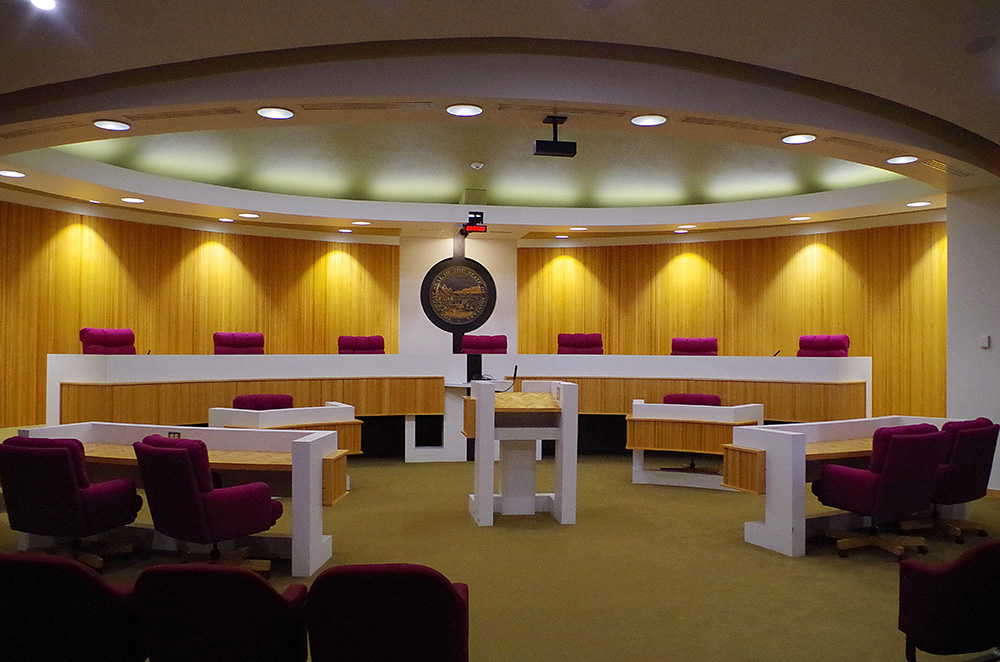HELENA, MT — The Montana Family Foundation filed a legal challenge last week seeking to prevent Constitutional Initiative 128, the so-called “abortion rights” amendment that Montana voters approved in 2024, from taking effect, arguing the measure violated state constitutional requirements for ballot language disclosure.
In an interview with Western Montana News, the organization’s Chief Legal Counsel Derek Oestreicher said he believes the challenge has strong legal grounds and expects a decision from the Montana Supreme Court before July 1st, when CI-128 is scheduled to take effect.
Oestreicher filed a Petition for Original Jurisdiction with the Montana Supreme Court, claiming CI-128 violated the Montana Constitution in two key ways that invalidate the election results.
“CI-128 violates Article XIV, Section 9(3) of the Montana Constitution, which requires the entire text of a proposed constitutional amendment—not just a short summary—to appear on the general election ballot,” Oestreicher said.
Oestreicher explained that voters only saw what he called “a ballot issue statement, which is kind of like a tweet because it’s limited to about 120 words.” He argued that while state statutes require this summary, the Montana Constitution requires “the proposed amendment itself be placed on the ballot.”
The petition also argues that the amendment “disenfranchised Election Day voter registrants in violation of Equal Protection, because these voters were never given the opportunity to see or study the full language of the amendment before voting on this weighty and permanent change to our state constitution.”
History of Legal Challenges
The Montana Family Foundation’s post-election challenge continues a pattern of legal opposition to CI-128 that began before the amendment ever reached voters. Derek Oestreicher previously filed an amicus brief supporting Attorney General Austin Knudsen’s attempts to change the ballot language for CI-128.
The Montana Supreme Court rejected those pre-election challenges in a 4-3 decision, with Justice Ingrid Gustafson writing that the Attorney General’s proposed alternative language was “argumentative” and designed to “influence the voter to vote against the initiative.” The Court found the AG’s language would “misrepresent the purpose and effect” of CI-128.
The current challenge builds on Montana Supreme Court precedent from the 1980s that established requirements for constitutional amendment ballot language. The organization argues that if the Court applies the same legal logic from those earlier cases, CI-128 should be declared null and void.
CI-128, which passed in November 2024, enshrined abortion rights in Montana’s constitution. The amendment received significant out-of-state funding during the campaign, with opponents arguing that foreign money influenced the outcome.
The Sixteen Thirty Fund, a progressive organization, contributed $3 million in support of the measure. That organization has received at least $280 million from Swiss billionaire Hansjörg Wyss since 2016, according to previous reporting.
Pro-Abortion Groups Move to Defend Amendment
Several organizations that supported CI-128 have filed a motion to intervene in the case, seeking to defend the constitutional amendment in court. The motion was filed by Planned Parenthood Advocates of Montana, the ACLU of Montana, Forward Montana, and Dr. Samuel Dickman.
The groups are represented by attorneys from Graybill Law Firm and the ACLU of Montana. Raph Graybill, who leads the firm, previously served as chief legal counsel to former Governor Steve Bullock and was the Democratic nominee for attorney general in 2020, losing to Republican Austin Knudsen. In their filing, they emphasize that CI-128 received “overwhelming approval” from Montana voters in November 2024.
The intervention motion indicates the case is active, though the State of Montana has not yet filed a response to the original petition or indicated whether it supports or opposes the intervention.
Oestreicher views the intervention motion as validation of his legal challenge. “I take the motion to intervene as kind of a badge of honor that this is legitimately a serious challenge to CI-128,” he said. “The proponents of CI-128 recognize the validity of our challenge, and they obviously spent a lot of money trying to get that on our ballot and trying to get it passed, and they’re trying to protect their investment now.”
Court May Take Direct Action
The Montana Supreme Court may either take up the case directly or ask the Montana Family Foundation to refile in district court. Oestreicher said the organization is prepared for either scenario.
“We are ready—and cautiously optimistic,” Oestreicher said. “If they deny original jurisdiction, we will file in district court. And inevitably, there will be an appeal and it’ll go to the Montana Supreme Court anyway. So we’re basically asking the court to skip that process and just rule directly.”
Oestreicher said he expects some sort of decision before July 1st, when CI-128 is scheduled to become part of Montana’s constitution.
Stakes for Montana Policy
If successful, the challenge would prevent CI-128 from taking effect, maintaining the current status quo where Montana’s constitution does not include specific protections for so-called abortion rights. The Montana Family Foundation characterized the legal fight as crucial for the state’s future direction.
“This is a battle for the soul of Montana,” Oestreicher said. “If CI-128 stands, it will open the floodgates to unrestricted abortion and strip Montana of its ability to protect innocent life.”
However, Oestreicher argued that even if pro-choice groups successfully intervene, “there’s nothing they can do to cure the constitutional deficiency at this point.” He compared the situation to spoiled food at a restaurant: “You’re not going to recook the same meal. You’re going to start from scratch.”
The Montana Family Foundation is asking supporters to pray for the case and consider financial donations to support the legal effort.
The Montana Supreme Court has not yet indicated whether it will accept the petition for direct review or require the case to proceed through lower courts first. No timeline has been established for the Court’s decision on how to handle the challenge.
